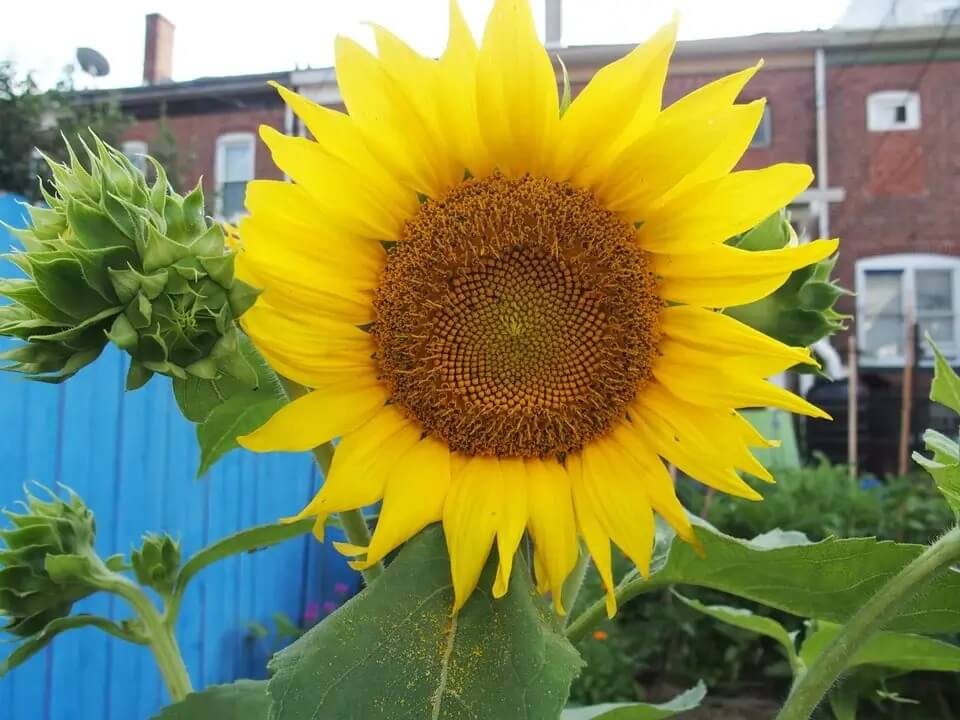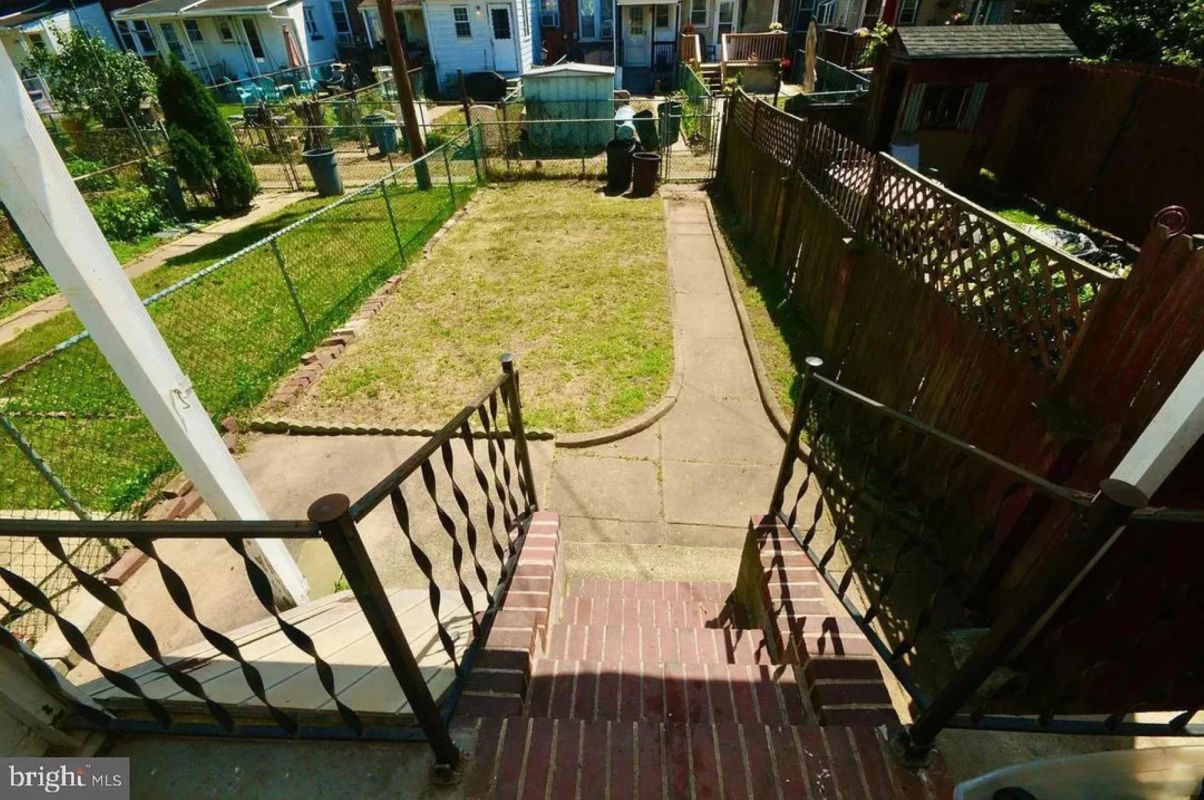One year ago, a homeowner showed Reddit how they worked a magical transformation in the tiny backyard of their narrow townhouse.
"Our backyard started as a grass lawn," said the user. "Now it is alive with pollinators and provides us with food all summer long."
The Redditor's "before" image backed up the story. It showed a small yard with a patchy yellow lawn made even smaller by the paved walkway running through it to the gate. Tall fences and narrow houses crowding in on all sides gave the space an almost claustrophobic feeling.
Eleven "after" images show a thriving garden, recognizable only by the paved path. The Redditor removed the water-guzzling, unproductive grass and replaced it with a vegetable garden full of sunflowers, salad greens, radishes, raspberries, butternut squash, turnips, green beans, tomatoes, cucumbers, and several varieties of peppers.


Some of the photos show off the incredible bounty the original poster managed to harvest; they filled multiple bowls with fresh produce they otherwise would have had to buy from the store.
Even the flowers in the garden served a purpose. "You've got bee balm and coreopsis in there… making pollinators happy!" said one user.
The original poster also said they're growing anise hyssop. "The pollinators go crazy for it and it makes a pleasant tea," they added.
Supporting pollinators is vital for a successful garden. Many plants won't produce fruit or seeds unless they're visited by bees, butterflies, and other small creatures. Planting flowers that feed and shelter these insects helps gardeners grow more produce, makes it easier to save money on groceries, and protects the environment, which depends on pollinators.
Plus, a healthy, pollinator-friendly garden looks amazing. "From bland to beautiful! And useful," said one commenter.
"Amazing how much can fit in a compact space," remarked another user.
Homeowners who aren't sure about the best plants to attract pollinators in their area can consult with Yardzen, a landscaping company with experience in native plants and rewilding, to find the best fit for every yard.
Join our free newsletter for easy tips to save more, waste less, and help yourself while helping the planet.









